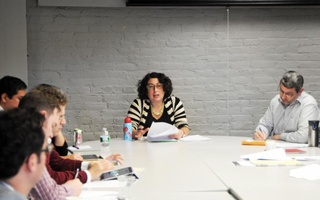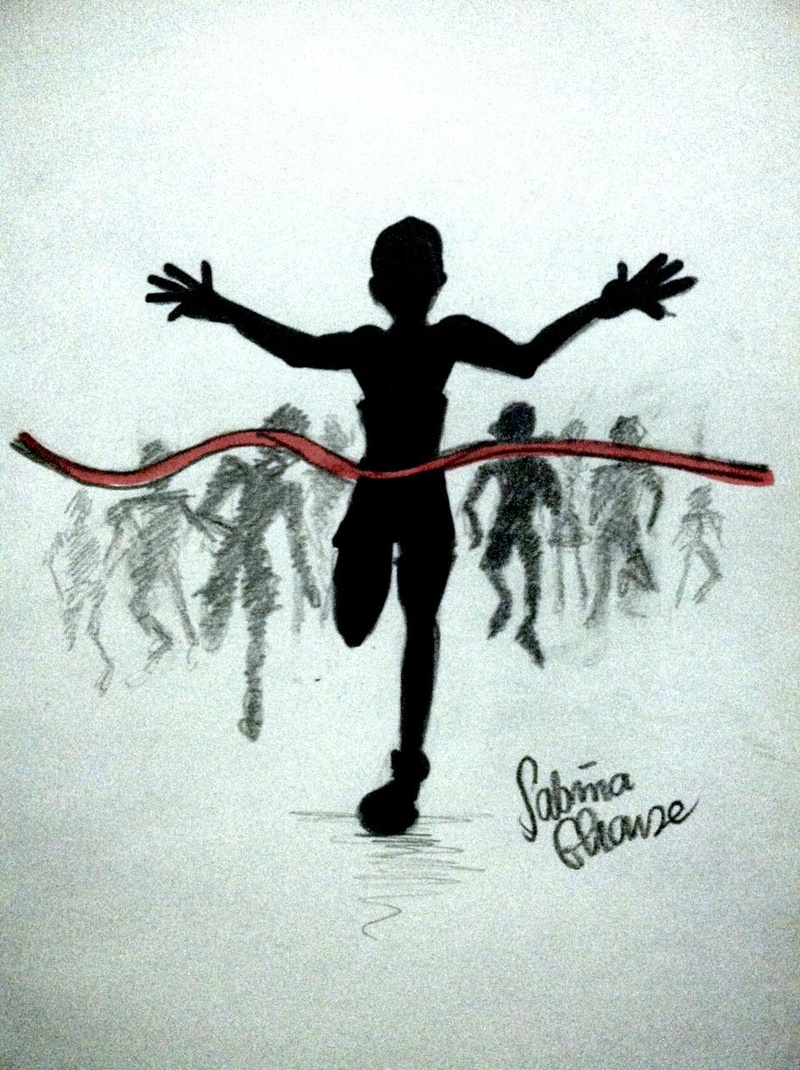Monday, an explosion at the finish line of the Boston Marathon wounded dozens and killed three. The race, a quintessentially Bostonian tradition that brings joys to the city and many in the Harvard community, became a tragedy that was heard around the world.
As my high school friends began inquiring about my safety, I had a novel realization that I was a proud Bostonian. I have lived in the city for almost three years. I’ve savored the food, cheered for the teams, and complained about the weather. But it took a tragedy for me to become fully conscious of my identity as a Bostonian.
I feel solidarity with the complete strangers at the Marathon. In response to tragedies, people find a powerful force that joins them together. Perhaps it’s the juxtaposition of the vulnerability and value of a human life. Or perhaps, the overwhelmingly resonant emotions trump any individual differences. I felt the anger and helplessness of the peace-loving people who ran for charity. I worried about my friends who ran, like numerous other families whose loved ones were in the hospital or could not be contacted. I felt, like many Bostonian blood donors did in the past two days, an urge to help.
Experiencing these emotions, I couldn’t help but think about other tragedies on the scale of the Marathon bombing occurring daily around the world. I cannot find coherent moral reasons to care about strangers in Boston, but not strangers in Iraq. On the same day as the Marathon bombing, coordinated terrorist attacks in Iraq killed at least 55. In the last decade, more than 68,000 lives have perished in terrorist attacks, of whom most are civilians. It’s easy for bombings in remote parts of the world to become mere statistics, but the Boston tragedy is a visual reminder of the experiences of those whose daily lives are full of terror.
Even if we bring justice to the perpetrator(s) in the Marathon bombings, it will be nearly impossible to prevent such rare events at home. We can, however, make an impact in other countries heavily inflicted with domestic terrorism. According to a study of global terrorism by the Institute for Economics and Peace, there are certain values and institutions that are historically correlated with domestic peace.
Countries with persistent “group grievances” have higher levels of domestic terrorism. Globally, religious and nationalist institutions that preach hatred for other groups create never-ending mutual animosity. The eye-for-an-eye mentality makes each group both the perpetrator and the victim. As globalization and human migration force us to live with others who do not look the same or eat the same food, maintaining an equal, united environment that minimizes inter-group tention will be a challenge for governments and communities for years to come.
We can also find roots of terrorism in authoritarian governments that do not respond to the discontent of their citizens. In South Asia, an area with increasing incidences of domestic terrorism, the lack of equal opportunities and corrupt governance have led to militant communist uprisings that terrorize existing institutions. Their violence perpetuates the cycle of poverty and poor governance. In these regions, replacing poor political institutions is at the heart of the defeating terrorism.
To commemorate the recent tragedy, we should perhaps take a look at the first time Boston’s blast was heard around the world. On April 19, 1775, the Patriots in Boston fired the first shots of the American Revolution against a British tyranny. In the years to come, the revolution grew from the Patriots’ love for equality and freedom from oppression. These values, ratified by the Constitution as institutions, ensured American prosperity and domestic peace for most of its splendid history.
The legacies of the Patriots do not only live in our Constitution or on the Freedom Trail. As the Patriots’ worldly values grew out of the Georgian townhouses of Lexington and spread around the world, they are also quietly preserved in this city’s inhabitants, passed down through centuries of local communities and institutions. In the aftermath of the Marathon bombings, the face of local heroism was Carlos Arredondo, a Costa Rican peace activist who not until recently became an American citizen and Bostonian. His example shows that new Bostonians like myself (and many others at Harvard) are part of a community based on equality and freedom rather than religion or skin color, which make us more resilient in times of terror.
The Boston Marathon on Patriots' Day is usually proclaimed as a proud remembrance to the local militiamen’s valor and strength, but Monday's tragedy should also serve as a reminder of the Boston Patriots’ values: freedom and equality. These values, not drones, will help eradicate terrorism around the globe. These values will help those facing tragedies to overcome adversity. I hope that the next time Boston is heard around the world, it will be for the chants of freedom and equality, and not for the detonation of violence.
Jonathan Z. Zhou ’14 is an applied mathematics concentrator in Eliot House. His column appears on alternate Wednesdays.
Read more in Opinion
Light DilutionRecommended Articles
-
 A Post Post-9/11 World
A Post Post-9/11 World -
 Warren Fellow Examines Terrorist Psychology
Warren Fellow Examines Terrorist Psychology -
Terrorism or Thought Crimes?This trial threatens to establish a chilling precedent for civil liberties within the Muslim community as well as within America at large.
-
Human TragediesThese two mass killings demonstrated how random, single-event atrocities receive disproportionate attention in the public sphere.
-
Focus on Foreign Policy As Election NearsVoters cite global affairs, defense, Iran, and terrorism, as crucial factors that will influence their decision on election day, according to a nonpartisan poll conducted by Harvard Kennedy School’s Belfer Center for Science and International Affairs released on Friday.
-
 UN Official: Geneva To Launch Investigation on Drone Attacks
UN Official: Geneva To Launch Investigation on Drone Attacks














